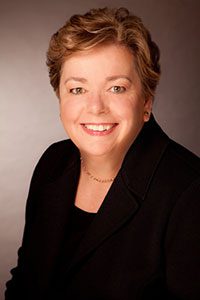by Mike Prokopeak
June 16, 2017
Lesley Hoare is a global talent executive who until recently was vice president of global talent development at cloud software company VMWare. She’s held executive positions at software company Oracle, consumer products giant Kimberly Clark and started her career in talent development while working at Hewlett Packard.
She sat down with Chief Learning Officer at the CLO Breakfast Club event in San Francisco in April and shared her perspective on the role of a learning executive, her career path into talent development and the best career advice she ever received.
In the excerpt below, Hoare talks about why she made the transition from the customer side of the business to learning. For more highlights from the event series, visit the CLO Breakfast Club library.
Chief Learning Officer: Tell me a little bit about how you got into L&D. You once told yourself that you would never leave a customer-facing role for an internal-facing one such as an L&D role. What changed?
Lesley Hoare: I always said there were two places I would never work. One was corporate and the other was HR. I was working for HP at the time in London and HP was going through a big change and I was in the consulting side of the organization and doing some customer education and a lot in the change management area. We were making a huge shift to consulting from an applications point of view.

I went to the then head of the organization with a plan and basically said, “Look. You’ve got these objectives, you’re trying to shift the culture. You have a lot of engineers that you just put a badge and given them new business cards and call them consultants. You’ve got a lot of what we call district managers who are in the office all the time that you have now said are going to be consulting managers and you’ve done nothing on the change capabilities side. You’re gonna fail and this is what I propose you do.”
I thought I had done really well with the proposal as to what he should do and I dutifully took the HR person along with me, thinking that if he agreed they’d do it and then I would go back to my customers. He called me up the next day and he says, “I’ll do it, but I want you to come and do it for me.” I said, “I don’t do that. I do customers.” He convinced me and I found I loved it and I actually found I could make as big, if not bigger impact, actually working with the talent inside an organization as I could with customers.
CLO: That’s really interesting because I think that’s more and more a theme we hear as we talk to talent leaders, coming in from an outside role and taking on a lot of that internal function. What did you feel like you brought to that role that perhaps somebody who had grown up an HR person wouldn’t?
Hoare: I brought a much more business-orientated view. That was No. 1. I was working in that space and with customers but it was very tied to profit. I managed profit centers [so] I was very business focused about it. I was also very focused on thinking things through. Walking a mile in the shoes of people that were gonna be receiving training and really having a good understanding of what their days look like and thinking about creative ways to fit it in. It was those two things – and absolute hatred of HR speak. Because when HR talked to me before I was in HR, it felt like HR speak or it felt like L&D speak to me and [I thought], “How can they know?”
CLO: This was a while back and you’ve stayed in roles that have been internal L&D and more broadly talent management. You’ve been at Kimberly Clark, Oracle, a number of places. How have you retained that outsider’s perspective while being an insider?
Hoare: It’s hard. It really is hard and I love to bits my HR colleagues but you’ve got to get out and you’ve got to talk to business leaders. It’s okay to talk HR speak within HR but you’ve got to really think about the words that you use when you talk to the business people and stop yourself when you’re starting to sound like a learning and development geek.
For more of our conversation with Lesley Hoare as well as other chief learning officers at the CLO Breakfast Club, visit the CLO Breakfast Club library.




